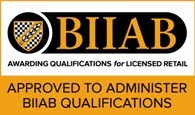To view the original article Click Here
Title – You may be drinking more than you think
Source – The Times
Date – 19th May 2008
This new £10 million initiative seems to finally be a sensible and balanced approach to adult drinking habits in the UK. There is none of the scaremongering, none of the preaching, none of the overly dramatic graphic imagery; this new government campaign is treating us as adults and providing straight forward information.
There is no doubt that there is a section of the population that openly drink to excess and that have become alcohol dependent; but there is also a substantial group who may be drinking excessively without really being aware of it. What is important is that not everyone in the country is treated the same as those who are alcohol dependent and need help to change their alcohol consumption to more manageable levels.
One of the fundamental problems in recent years, as I have discussed previously in this blog, is that the change in alcohol consumption trends over the past decade have not being mirrored by the systems in place for measuring consumption. The system of Units was very outdated and most people don’t understand the limits that were suggested and had no idea how to measure the units they were consuming.
This campaign is subtle but clear. In the television adverts drinks are subtly labelled with their units in a clever way that is not patronising or aggressive. It seems to understand that allowing individuals to understand the consequences of their actions, allows them to change their own habits for their own benefit.
The licensed retail sector should not be scared of these types of educational messages; they would be better to accept them and embrace them. They present a constructive approach to the problems that face the industry and alcohol consumption within society generally. These advertisements are much more helpful than the cruder prohibition routes; or the ridiculous notion that we should go back to serving wine in only 125ml glasses as the solution to all our problems…
The problem with this campaign is that it is very one dimensional and it has to be. There would be little point in the campaign trying to depict a pint of Carling as containing a certain number of units and a pint of Stella containing a different number, that would just confuse the message; they have to depict the maximum that any one ‘type’ of drink may contain. It should be for the industry to embrace this new direction and provide more accurate labelling, this opens to door to even more choice being made available to the consumer, based on accurate information..
The key as always is providing accurate information and to do that it is the people on the front line we need to educate most. If the people actually selling alcohol know exactly what they are supplying then they can inform customers who are then free to make a personal choice on what to consume and how much to consume.
The relative strengths of different drinks and their abv. Is one of many subjects covered in our portfolio of BIIAB approved training courses. These include the National Certificate for Personal Licence Holders (NCPLH), Award in Responsible Alcohol Retailing (ARAR) and The National Certificate for Designated Premises Supervisors (NCDPS).
Please visit our website at www.btbl.co.uk




